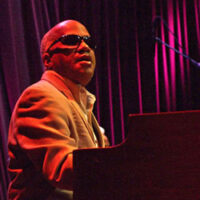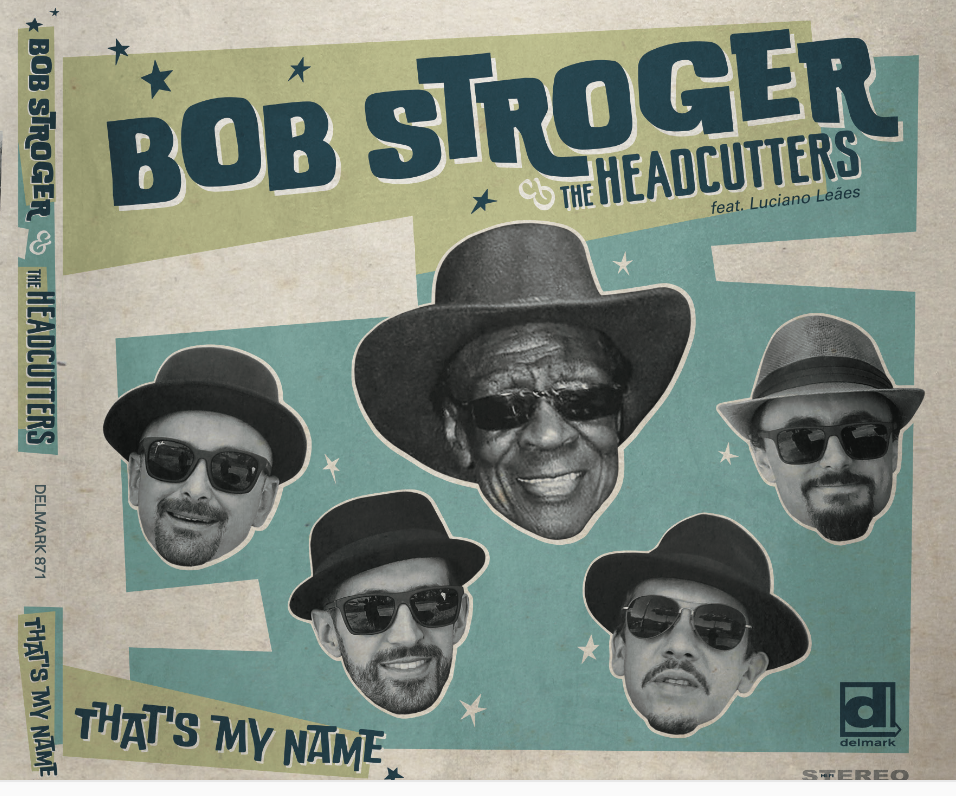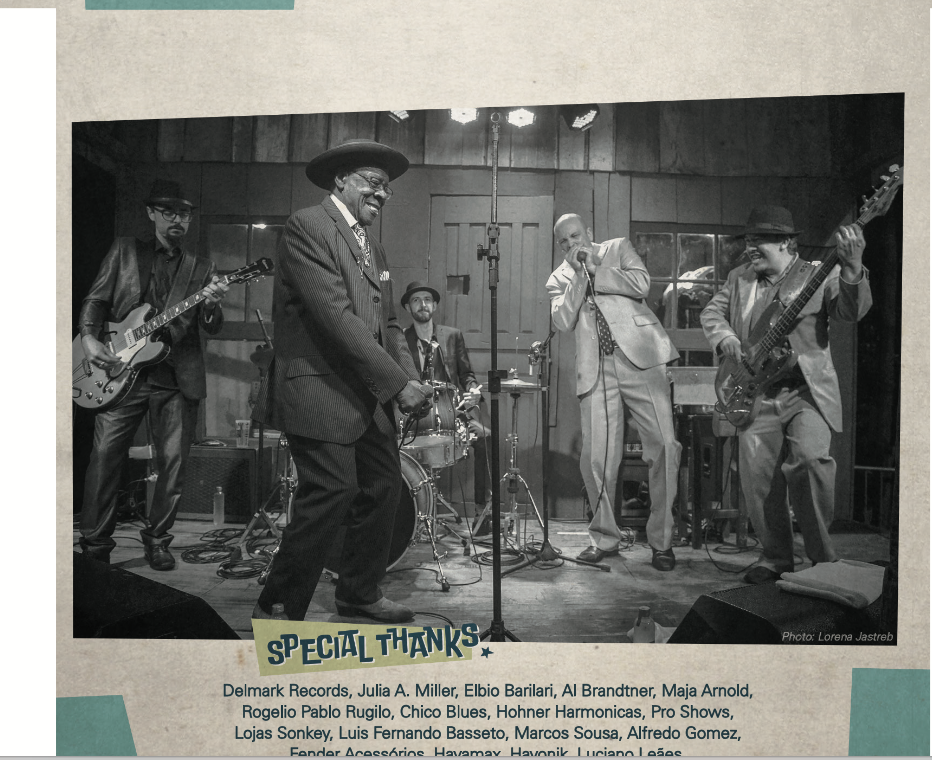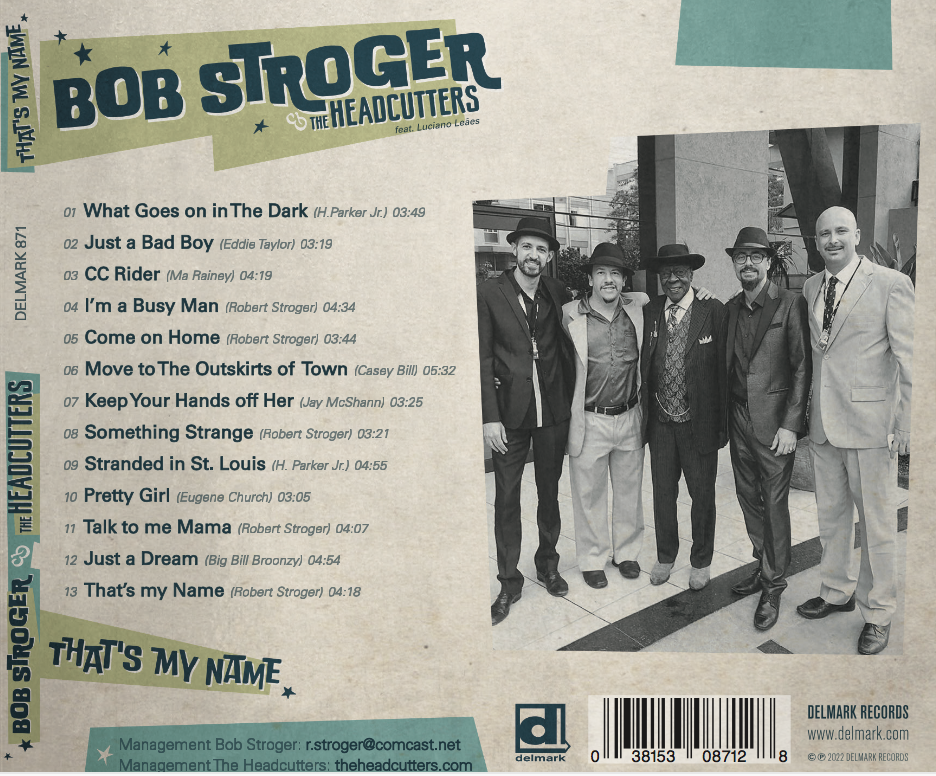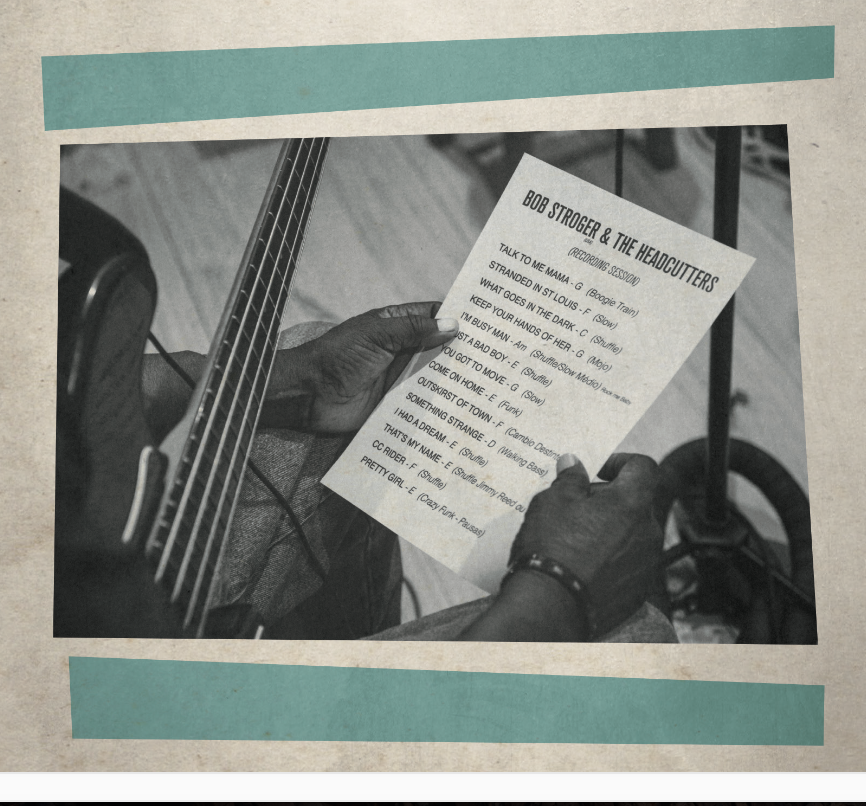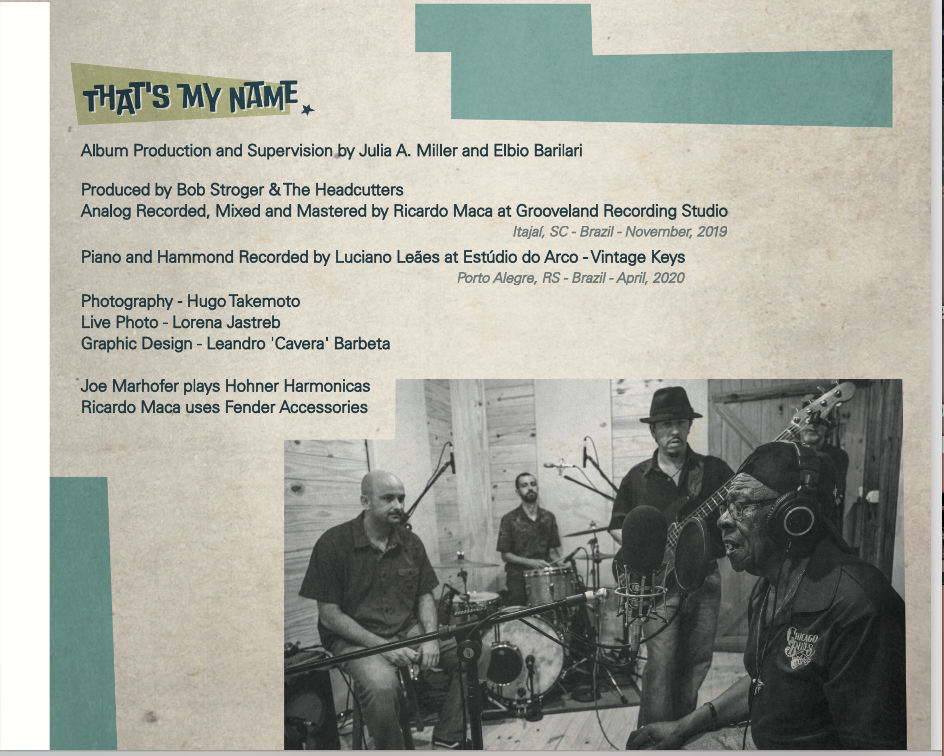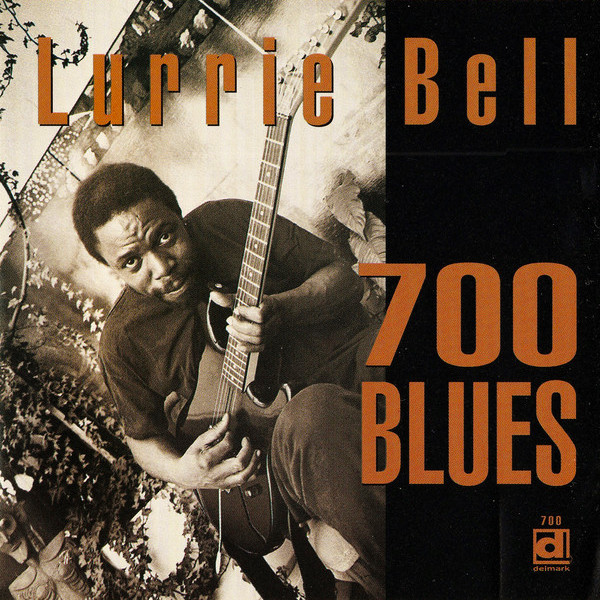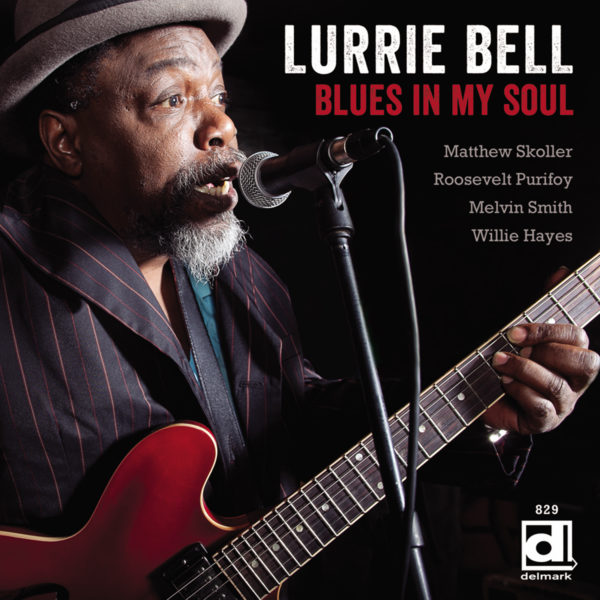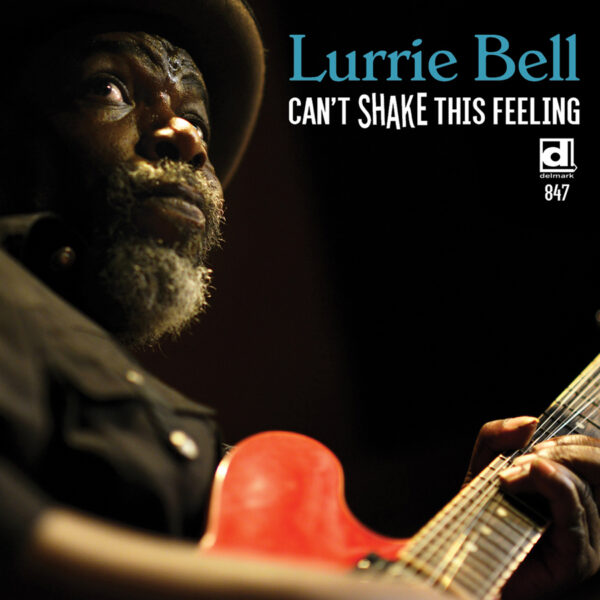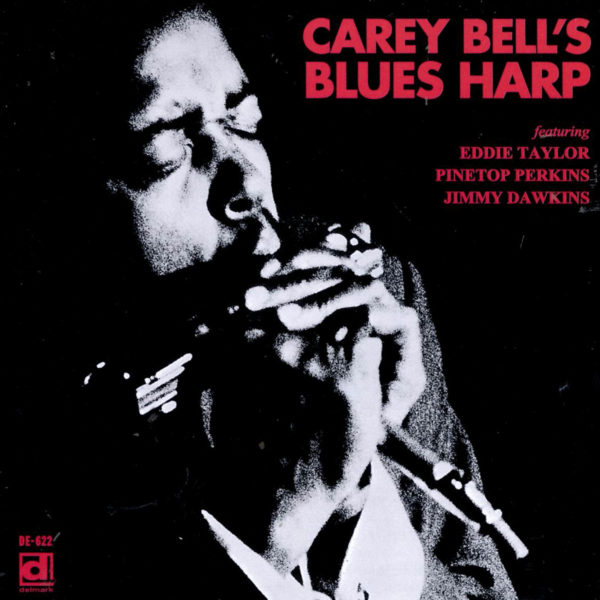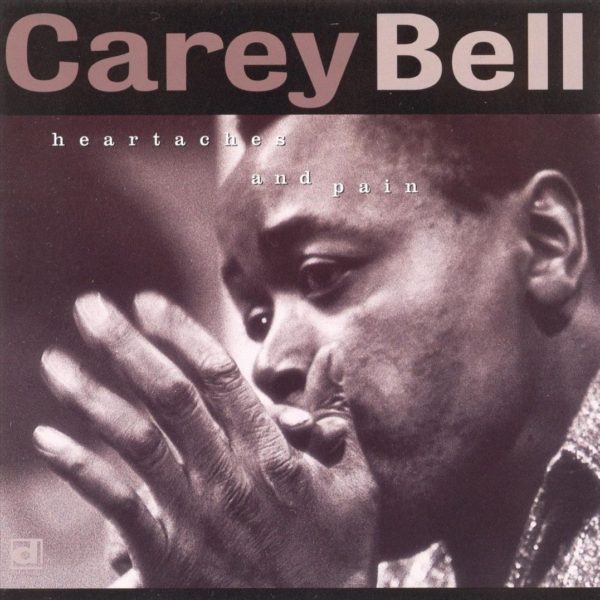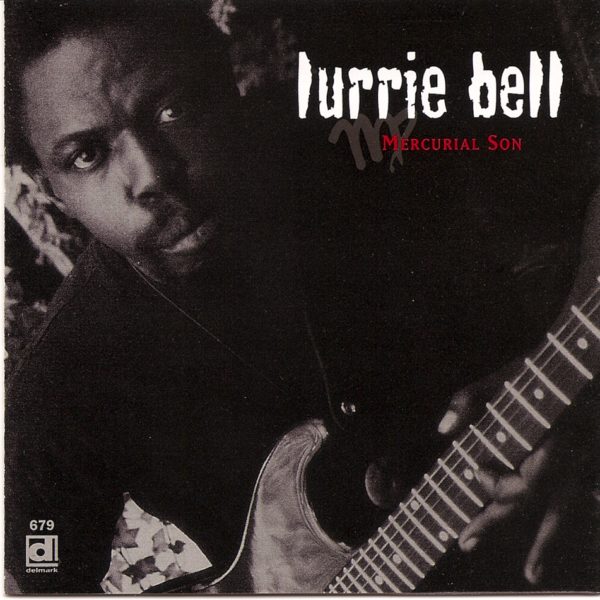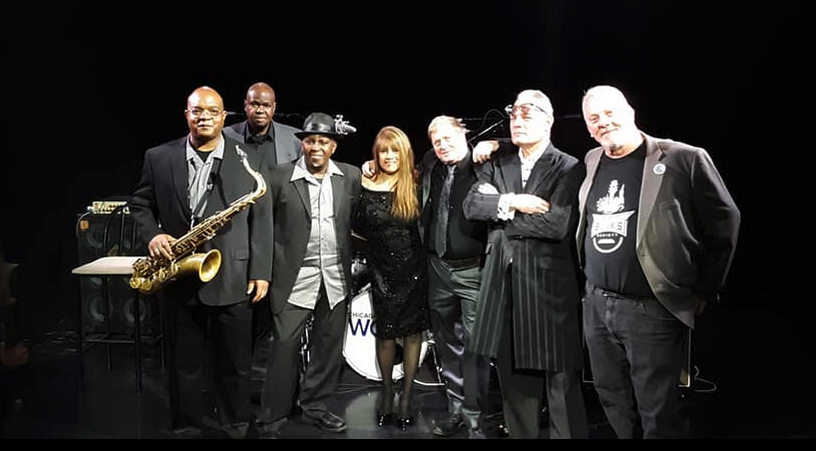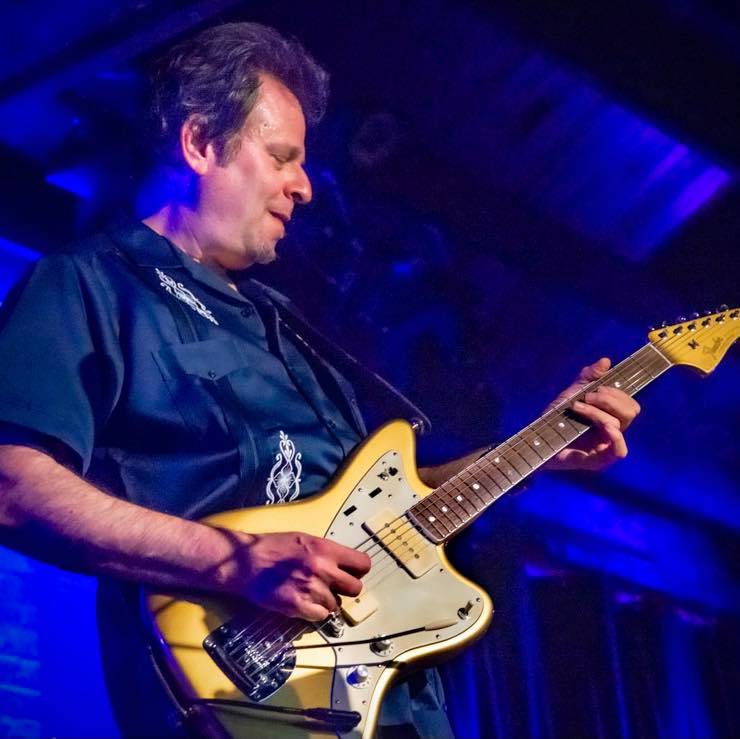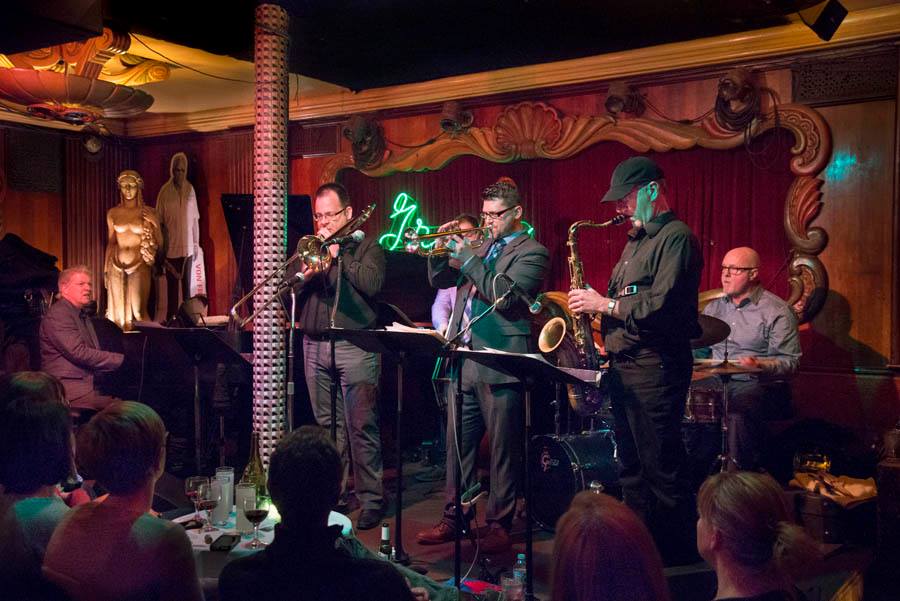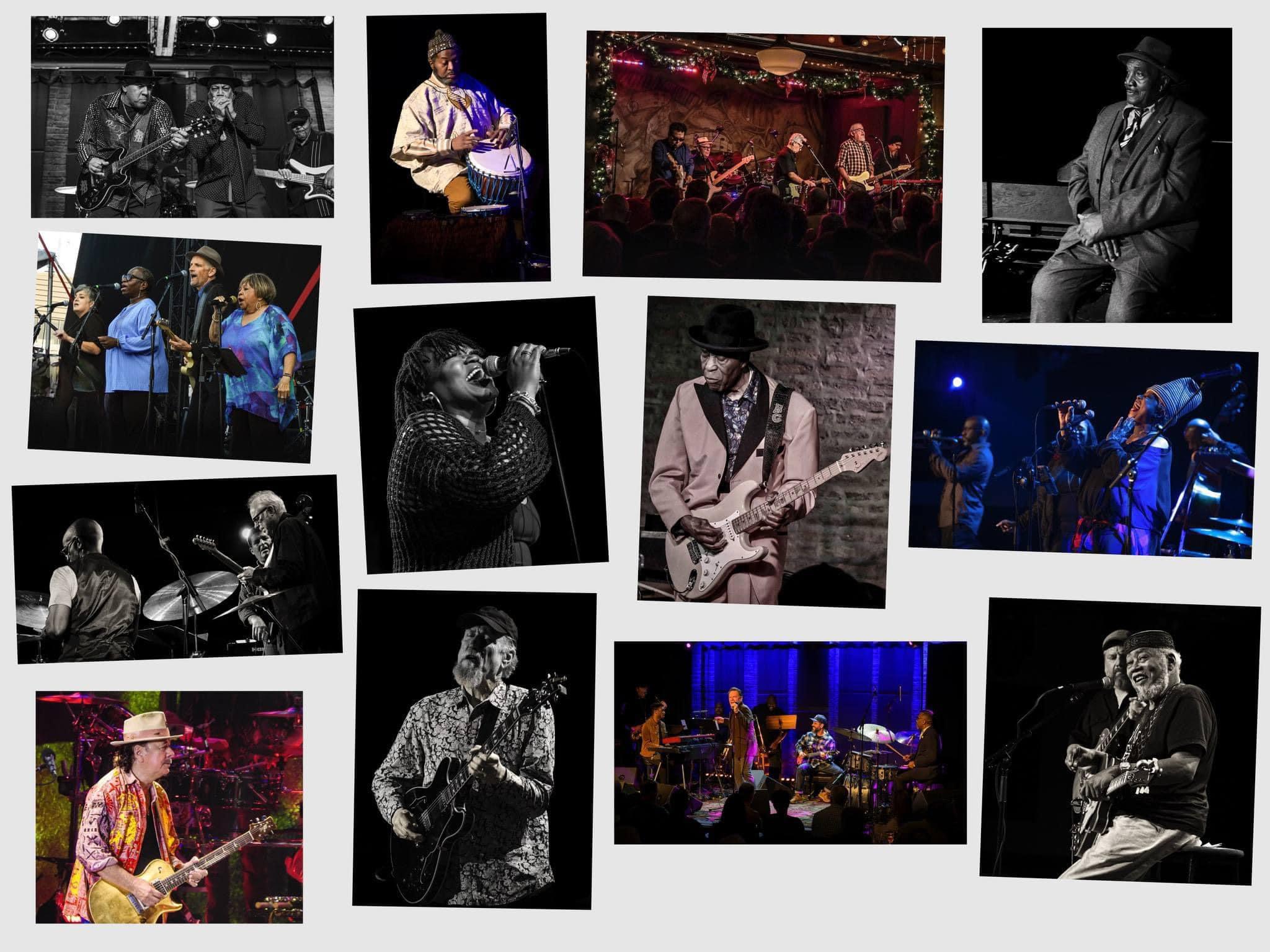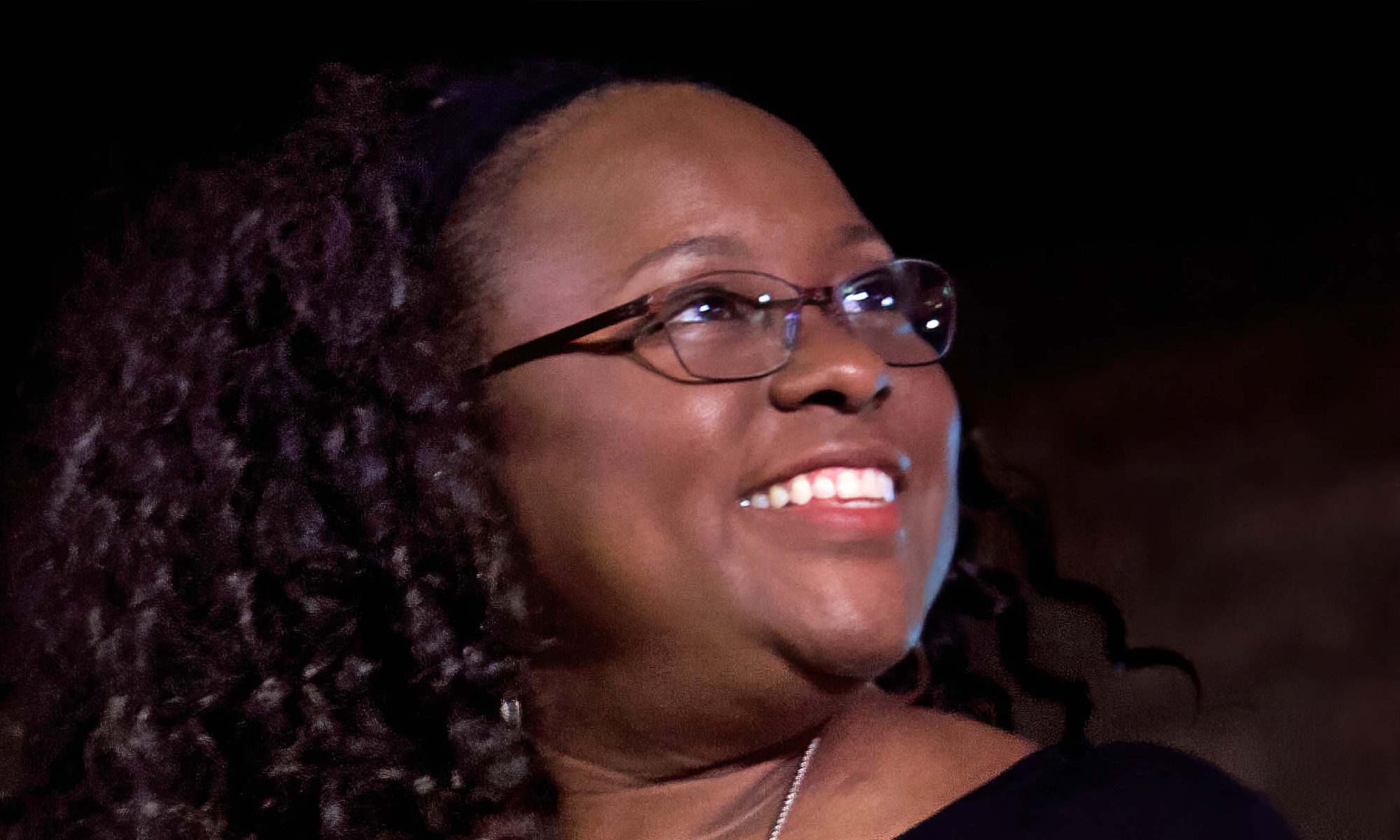Bob Stroger & The Headcutters: Winter Release Very Soon
GLOBAL BLUES: 90-year-old Chicago blues master with the sensational Brazilian band “The Headcutters”, get ready!
Lurrie Bell Artist of the Month: born December 13th, 1958, Chicago
“Lurrie Bell, his father Carey Bell, & the Bell family have ten albums on Delmark Records. Lurrie, our Artist of the Month, was born in Chicago, December 13th, 1958. He has and he will always have a home in Delmark and in our hearts. Join Delmark Records and AirPlay Direct in this celebration of Lurrie Bell and the Bell dynasty”, says Delmark Records President Julia A. Miller. Delmark has made available all ten albums by the Bell family for global radio.
DJs, radio hosts & radio stations go to AirPlayDirect at https://airplaydirect.com/music/delmarkrecords/
Also, scroll down after you CLICK on this link access ALL Delmark titles. 100% free for radio professionals.
WELCOME JAZZ MASTER ANDY BAKER TO DELMARK FAMILY
Andy Baker is a trombonist, composer, arranger and educator originally from London, now living in Chicago. In addition to a full-time performing career, Andy is a clinical assistant professor at the University of Illinois at Chicago (UIC). Andy performs exclusively on Michael Rath Trombones and Dennis Wick Mouthpieces. In the Spring 202 Delmark Records will release 2 different by Andy and his musical associates, one featuring the BakerzMillion Quintet, and another one featuring Andy’s quartet.

Julia A. Miller: Delmark President featured by DOWNBEAT MAGAZINE, thank you Howard Mandel.

News The Latest From Around The Music World
Delmark Records: Modern Day Scrappy in Chicago
News, By Howard Mandel I Nov. 23, 2021
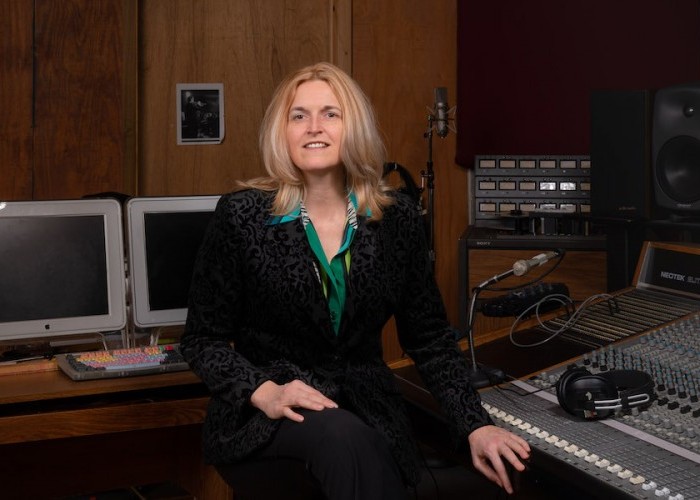
Guitarist, composer, electronic musician and Art Institute of Chicago professor Julia A. Miller took a bold step three years ago when she bought Delmark Records, America’s oldest, continuously operated indie blues and jazz label, from its founder, Bob Koester.
But she was well-prepared. With more than 750 titles in a catalog rich with albums by Delta-songsters, rent-party pianists, South and West Side blues progressives, jazz traditionalists and modernists, iconoclastic and now iconic AACM musicians, and re-issues of rarities from historic imprints, Delmark had a solid reputation for quality music, a roster of active artists and plentiful inventory in its own building with a reputable studio.
However, Koester, who also owned the Jazz Record Mart in Chicago, lagged in taking advantage of many 21st century digital opportunities. And Miller, who has taught courses on music business as well as composition and the evolution of audio playback machines, knew that territory well. She had enjoyed some 25,000 downloads of her experimental Solo Variations, with another 50,000 or so of music by her band, Volcano Radar, which she leads with her personal partner Elbio Barilari, on the internet-only digital label Pan y Rosas.
“I could see that model had a future that needed to be implemented,” Miller said in a phone interview, fresh from jamming in the studio with guitarist Billy Flynn. “I had also been involved in an internet radio project, and I had earlier set up a very small business venture for several composition and band projects I had going on to see how this might work. I’d done a lot of research over a long time, so I understood distribution, copyrights and other fundamentals. And my family has had a series of businesses, mostly in manufacturing, for the past half-century, so I grew up seeing how such things work.
“But Delmark was a much bigger challenge. So one condition to taking this on was to work with a professional CFO to put together a detailed business plan and projections based on analysis of the information we were receiving from the Koester family.”
She and Barilari, who is a musician, journalist and professor and now Delmark’s artistic director, invested plenty of time getting to know the company and catalog before the purchase. “We had a five-year plan when we started,” she said. “Two years into that arc, we had to switch around some planned components and accelerate others, due to the pandemic. But it’s worked out well. For example, we always planned to focus on the digital side, and did a ton of that work over the pandemic year, increasing our digital presence to more than 11,000 tracks from 1,500.
“People tend to overlook that, unlike before, our only retail outlet is our website. Otherwise, we sell wholesale or sell to artists. Bob Koester’s orientation was toward retail, but we’re oriented toward distribution, creation and also artist support.
“We’ve worked really hard to make the catalog available in all digital formats: downloading, streaming, internet and terrestrial radio, and also sync placements, which are usually excerpts used in commercials, TV or film that provide good visibility for the artist and the label, and income, too. We still deal in CDs, vinyl — we need to reprint covers to return some Delmark classics to availability, and even audiophile reel-to-reel versions.”
The label continues issuing vibrant new material — about 20 albums so far in Miller and Barilari’s tenure. Among the standouts: Every Day Of Your Life, reigniting the career of 92-year-old guitarist and singer Jimmy Johnson; Too Hot For Words by vocalist Dee Alexander with the Metropolitan Jazz Octet in tribute to Billie Holiday; and General Semantics by the trio of Geoff Bradfield (saxophones and bass clarinet), Ben Goldberg (clarinets) and Dana Hall (percussion). “We look for particular recordings by particular artists,” Miller said. “They might be categorized as jazz or blues, but to us they are special records, critical recordings, that fit with the rest of the catalog.” DB
DELMARK RECORDS FEATURED BY BIG CITY BLUES MAGAZINE, thank you Sugar and Robert Jr Whitall
A sunny summer day in Chicago
at Delmark Records Studio
The Early History of Delmark Records
And the Bluesmen who recorded there
Delmark Records
The Indelible Mark of Excellence
Interview with Julia Miller and Elbio Barilari
Bob Stroger Have Bass Will Travel
Dave Specter 30 Years with Delmark Records!
Jimmy Burns Seven Decades into the Blues!
Mud Morganfield His Own Voice
Mike Wheeler A Self Made Man
Linsey Alexander Chicago Stalwart
Demetria Taylor Stellar Singer from a Blues Family|
Susbcribe to this great magazine: https://www.bigcitybluesmag.com/
UPCOMING RELEASES:
Dave Weld & the Imperial Flames. The best album yet for this strong and hardworking band
Jose Ramírez with guest artist Jimmy Johnson and Delmark Allstar Band, Bob Stroger, Willie “The Touch” Hayes, Roosevelt Purifoy & Billy Flynn & Jose with his own band as well.
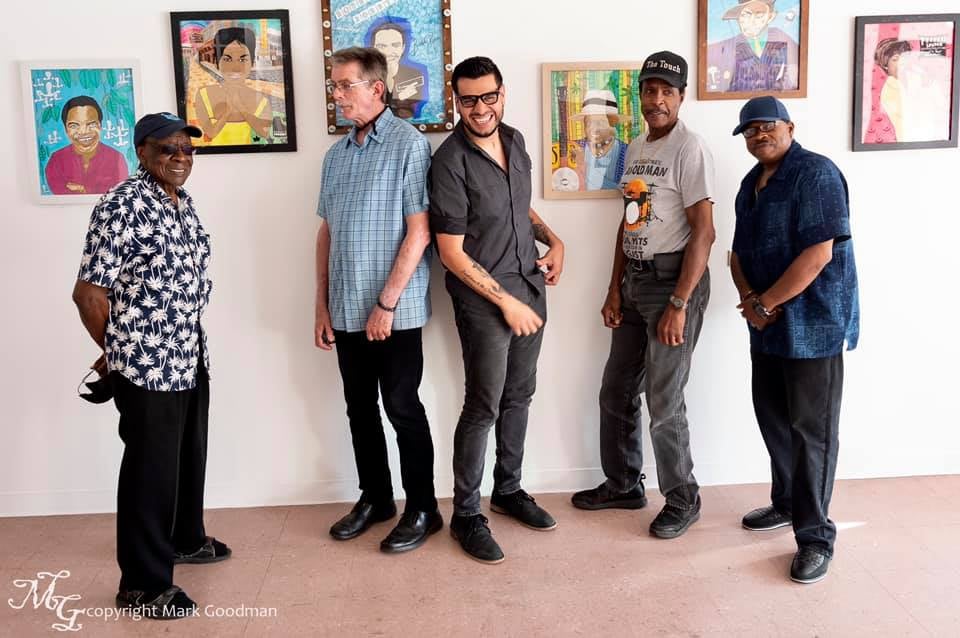
Dave Specter’s “Six String Soul” LP, yes VINYL too!!! TWO LP’s. This historical double album is doing GREAT on radio and getting superb reviews from around the world.
Demetria Taylor with The Mike Wheeler Band. Demetria adds an amazing chapter to the saga of the Taylor blues dynasty.
“BakerzMillion – Live/Live in Racine”
“BakerzMillion – Live/Live in Racine”
Andy Baker – Trombone, Steve Million – Piano, Eric Jacobson – Trumpet, Jim Gailloreto – Tenor and Soprano Saxophones, John Sims – Bass, Tim Davis – Drums
Track Listing:
Bluesish – Andy Baker
Baby Steps – Andy Baker
Eisen Blue – Steve Million
Softly – Andy Baker
Second Hand Smoking – Steve Million
State of the Estate – Andy Baker
Andy Baker Quartet
Andy Baker – Trombone, Russ Johnson – Trumpet and Flugel Horn, Clark Sommers – Bass, Dana Hall – Drums
Track Listing:
Close Your Eyes – Bernice Petkere
7:4 – Andy Baker
A Flower is a lovesome thing – Billy Strayhorn
Skylark – Hoagy Carmichael
Blues For VDB – Andy Baker
First, Second, Third – Andy Baker
Krissy’s Caper – Andy Baker
Softly – Andy Baker
The State of the Estate – Andy Baker
DELMARK BLUES COMMUNITY HAS REACHED 5K MEMBERS
CLICK & JOIN: https://www.facebook.com/groups/969187630221145
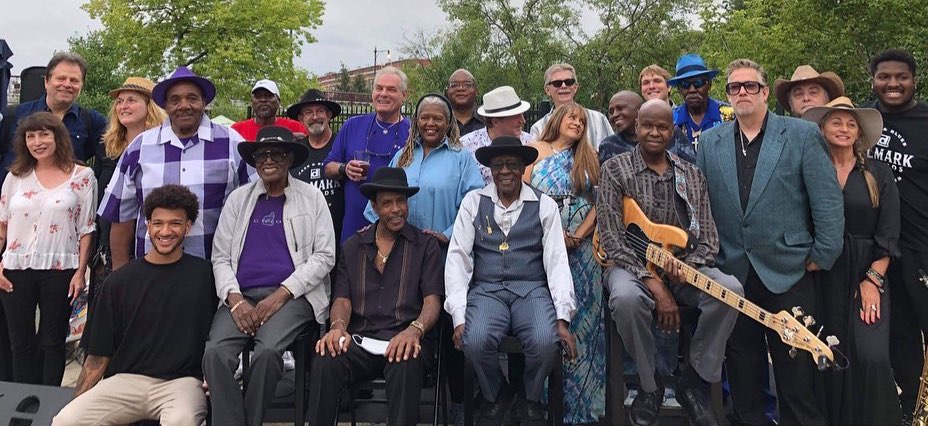
Delmark Blues Community is a facebook group open to ALL blues musicians and blues lovers around the world. ALL styles of blues from every period are welcome and celebrated here without prejudices. Delmark Blues Community is dedicated to promote blues history and legacy and to support LIVING blues artists. Please, post your favorite videos, photos, anecdotes, gigs, releases and live streams. Also, ALL LANGUAGES are welcome! Blues lovers are an international community and we must come together as one to help the musicians in keeping the blues alive!
MUSIC FOR CHRISTMAS… REAL MUSIC!

Q&A with Delmark Records’ Julia A. Miller & Elbio Barilari – the Soul and Heart of legendary label of Chicago
“Blues & Jazz, creative music, is an important and necessary vehicle for expression of political views. Blues songs are about life, and they illustrate experiences, so they are perfect for political statements.”
Julia A. Miller & Elbio Barilari
Delmark Records: Keeping The Legend Alive
In May 2018 Delmark Records LLC purchased Delmark. Julia A. Miller became the CEO & President of the label and Elbio Barilari its artistic Director. Delmark Records is the oldest continuously operating jazz and blues independent record label in the United States. It was founded by Robert G. Koester in St. Louis, Missouri in 1953, originally under the name “Delmar.” In 1958, Koester and the label relocated to Chicago with the label’s current name: Delmark. Throughout its history, Delmark has released records by historical jazz artists such as Sun Ra, Sonny Stitt, Jimmy Forrest, Wynton Kelly, Curtis Fuller, Roscoe Mitchell, Anthony Braxton, the Art Ensemble of Chicago, Fred Anderson, Von & George Freeman, Ernest Dawkins, Ari Brown, Ken Vandermark, Jason Stein, Nicole Mitchell, Rob Mazurek, Paul Giallorenzo and so many more.(Photo: Julia A. Miller & Elbio Barilari / Courtesy Of Delmark)
Delmark’s stellar blues catalogue includes, among others: Junior Wells, Little Walter, T-bone Walker, Big Joe Williams, J.B. Hutto, Robert Nighthawk, Luther Allison, Magic Sam, Jimmy Dawkins, Jimmy Johnson, Sleepy John Estes, Arthur Crudup, Otis Rush, Roosevelt Sykes, Carey & Lurrie Bell, Eddie C. Campbell, Big Time Sarah, Eddie Clearwater, Dave Specter, Steve Freund, Linsey Alexander, Tail Dragger, Studebaker John, Billy Flynn and Jimmy Burns. The label also has released albums by musicians from Chicago’s Association for the Advancement of Creative Musicians. Today, Delmark is thriving. The label is a world force on the blues & jazz music scene with releases of jazz albums by Geof Bradfield, The Soul Message Band, Volcano Radar with Paquito D’Rivera, Fareed Haque and Goran Ivanovic, Dee Alexander with the Metropolitan Jazz Octet and the Fat Babies. The blues releases since May 2018 include Rockwell Avenue Blues Band, Willie Buck, Johnny Burgin, Breezy Rodio, Dave Specter with special guest Jorma Kaukonen, Jimmy Johnson and most recently Linsey Alexander, Johnny Burgin’s “No Border Blues” project and many other releases.
How has the Blues, Jazz and Latin music influenced your views of the world and the journeys you’ve taken?
Julia: I started asking for a guitar when I was 5 years old, and got one for Christmas when I was 7. As a child, I took music lessons on the guitar, and also the clarinet – mostly classical music. As a teenager, I learned how to play 12-bar-blues, and also played in jazz bands, circus bands, and community traditional jazz ensembles. When I came to Chicago, at 18, for music school, I went to Blues clubs – mostly on the Northside (Kingston Mines, BLUES on Halsted, Wise Fool’s Pub, Rosa’s). I also went salsa dancing at a club called Tania’s. While I studied classical music in college, afterwards, In my 20’s, I began to practice creative improvisation professionally. I started with blues and played jam sessions in clubs including Reservation Blues & Legends. I also began to work as a college professor and guitar teacher – on the guitar I had jazz guitar students, and as a professor I created many original classes including History of Recorded Music (a class on the historical music industry and recording techniques) and Song – which always started with Blues.
Elbio: I am a classically trained composer and I do a lot of symphonic and chamber writing. However, popular and folk music, rock, blues, jazz, tango and other Latin American genres, specially from Uruguay, Argentina and Brazil have been always a part of my life. My father is a classical, traditional jazz and tango aficionado. My mother was more into Benny Goodman, Artie Shaw and also classical music. At home we always heard good music. My first jazz experience was with Louis Armstrong’s Hot Five and Seven and Duke Ellington, I was 3 or 4 years old, not a bad beginning. Back at that time. in Montevideo, Uruguay, I was studying classical guitar and my father prohibited me to play electric guitar. However, I did have an electric guitar hidden under my bed, on loan by an older cousin, a beautiful Teisco Del Rey. In highschool we have a band. We played Beatles, Stones, Kinks, Creedence Clearwater Revival (they where HUGE in South America). Then I discovered Led Zeppelin, Hendrix and the blues through John Mayall and his gang, as so many people did. Immediately after that, I started listening to the real blues, from all eras. First B.B. King and immediately all the traditions and schools. I was also listening to the whole jazz guitar history, starting with Lonnie Johnson, Django, Charlie Christian etc. Simultaneously, I was a huge admirer of Piazzolla and the New Tango and of Brazilian songwriters such as Chico Buarque, Caetano Veloso, Milton Nascimento, etc. I never could do or like only one thing. For example, I was also very curious about Greek music, Hadjidakis, Xarchakos, Theodorakis. I am from Italian, Native American and Spanish descent. The Mediterranean has a big place in my heart.
“The blues are not just the 12 bars that anybody can play after studying guitar for a few weeks. The blues are a complex genre rooted in a social and historical context that must be understood and respected.” (Photo: Julia A. Miller the CEO & President and Elbio Barilari, artistic Director of Delmark Records)
How do you describe Delmark Records mission and music philosophy? How do you want to affect people?
Elbio: I see Delmark more as a cause than as a business. Now that Alligator Records has been absorbed by a corporation, Delmark is the last standing major independent blues label in Chicago. We are the custodian of an enormous musical treasure of over 12 thousand blues, jazz, R&B and even some gospel songs. We are building on Bob Koester’s legacy. We are working to give the older generation of Chicago blues the recognition they deserve, artists like Jimmy Johnson, Bob Stroger, Jimmy Burns, Willie Buck, Lindsey Alexander, just to name just a few. At the same time, we need to identify and produce the blues of the future. We have an enormous respect for the roots of the African-American blues, in Chicago and elsewhere. In my case, as a foreigner that life and destiny put in this position, I am very respectful of the musicians. My role is to bring my experience to the table to facilitate their work and to make sure they have what they need to accomplish what they dream. My approach to production is collaborative, never authoritarian. I am an anti-Phil Spector kind of guy, I guess. We are community oriented and the fact that I am also a member of a minority I think it put me in a better position to understand community action, outreach and respect.
What are the lines that connect the legacy of Delmark from 1950s to nowadays? What touched (emotionally) you from Bob Koester’s era?
Julia: The Delmark catalog holds some of the greatest and most important music in the Blues and Jazz genres. Also, many of the artists associated with the label are still alive, though that is definitely changing as they are aging, It’s important to highlight and care for that catalog, making sure that younger audiences know it exists, and giving the artists who are still alive opportunities to record new records. One thing that touched me from the previous era was the idea of the Delmark Family – people really care for one another and in many cases are actually biologically related, though that’s not necessary to become part of the Family.
“Two things. First, I would put people that actually KNOW music and respect musicians at the helm of every record company. Well, two things. Music education should be a part of the curriculum always and everywhere. Perhaps, sometime into the future universal music education could be the answer to my first point.” (Delmark founder Bob Koester with Julia A. Miller and Elbio Barilari / Photo by Dan Kapsberger)
Why do you think that Delmark continues to generate such a devoted following? What characterizes it in comparison to other labels?
Elbio: Essentially, the fact that Delmark grew as a family business and continues in that way today. From the outside observer’s perspective Delmark was Bob Koester. The artists and people aware of how Delmark actually functioned knew that Sue Koester’s role was key to develop that community sensitivity and to keep the business going. That has not changed. People are aware that Julia and I are a couple, a musician’s couple. I heard that some people say we are a couple of “eccentric hippies”, which I find very amusing and almost true. The fact that Delmark is a woman owned business also sets us apart within a male dominated industry.
Which meetings have been the most important experiences for you? What was the best advice anyone ever gave you?
Julia: One of the most important experiences was studying music composition with the great Italian composer Franco Donatoni, in Siena, Italy.
“Poné las bolas arriba de la mesa”/(Put your balls over the table) – Elbio Barilari
Elbio: I would say the two brief periods in which I was in contact with Charles Mingus during his gigs in Uruguay. Same with Elvin Jones. They would go on tour and also give clinics. I had the opportunity the see a lot of them. Also, Gerry Mulligan changed my saxophone embouchure, and I am eternally grateful to him for that. There was a memorable jam and talk with Bill Evans, too. I think it was in 1973 or 74. Undoubtedly, the biggest influence on me has been Astor Piazzolla, I got to know him well. I need to add here a friendship and musical collaboration of almost 30 years with the great Paquito D’Rivera and my unbelievable experience producing Jimmy Johnson’s newest album, “Everyday of your Life”. At the time he was 91 years old, a real master and an incredible human being full of energies too, he exhausted musicians 40 years younger, and he always wanted to keep going. The best musical advice I ever received came from Astor Piazzolla. I was 21 or 22 and after taking a look to one of my compositions he said: “Go ahead, keep going and never pay any attention to what other people have to say about your own music”.
“My role is to bring my experience to the table to facilitate their work and to make sure they have what they need to accomplish what they dream. My approach to production is collaborative, never authoritarian. I am an anti-Phil Spector kind of guy, I guess. We are community oriented and the fact that I am also a member of a minority I think it put me in a better position to understand community action, outreach and respect.” (Photo: Julia A. Miller, Elbio Barilari and blues master Bob Stroger)
How started the thought of ‘new’ Delmark Records? What is the hardest part to being President & CEO of Delmark?
Julia: The “New” Delmark started from before the purchase, as we were planning the company, and how we prioritized new structures for the company. The hardest part of being CEO is rebooting the business, caring for the catalog, and developing and prioritizing new projects, whilst also having time for my own creative work.
What do you miss most nowadays from the music of the past? What are your
hopes and fears for the future of?
Julia: I have listened to music including wax cylinders dating from around the early 1900s. If there is music from the past I want to listen to, I find the format and the player/device and listen to it as it was intended. That was a main premise of my History of Recorded Music class, and it’s a main premise in the current Delmark Riverside Studio. My hope, and intention, is that Delmark will remain a center & focus of creative music of all types, expanding into electronic genres. My fear is that large corporations will obscure music business history by the sheer magnitude of their operations.
Elbio: Well, the music industry as a part of the mass culture has been always pretty awful. There was an exceptional period between let’s say 1965 and some point in the 70’s, in which GOOD music was permitted to get into the mainstream charts. That did not happen before and doesn’t happen today. If you study the mainstream charts of the 30’s, 40’t and 50’s you will see a huge majority of crappy tacky strawberry songs coated in vanilla ice-cream. Now, everything you can see or hear in mainstream media is directed to the minimum common denominator; commercial jingles presented as “music”. We need to focus on our audiences of good blues and jazz and try to expand our reach using all the technological tools available to us. Among the billions of inhabitants of the planet there many that are still thirsty for good music and all the other arts. Very often they feel alone or isolated amidst the vacuum created by the mental enema of mass culture. We need to reach them to show them they are not as lonely as they may think, that there are many of us that don’t give up.
“The Delmark catalog holds some of the greatest and most important music in the Blues and Jazz genres. Also, many of the artists associated with the label are still alive, though that is definitely changing as they are aging, It’s important to highlight and care for that catalog, making sure that younger audiences know it exists, and giving the artists who are still alive opportunities to record new records.” (Photo: (Julia A. Miller, Elbio Barilar & legendary blueman, Jimmy Johnson / Courtesy Of Delmark))
If you could change one thing in the musical world and it would become a
reality, what would that be?
Julia: We are changing things about the musical world all the time, by the fact of our presence and the examples we set.
Elbio: Two things. First, I would put people that actually KNOW music and respect musicians at the helm of every record company. Well, two things. Music education should be a part of the curriculum always and everywhere. Perhaps, sometime into the future universal music education could be the answer to my first point.
What does it mean to be a female artist in a Man’s World as James Brown says?
What is the status of women in music?
Julia: Being a female guitarist is different now than it was when I was a kid. Growing up, there weren’t female guitarists in my generation – there were singer/songwriters. Now the band scene is vibrant, and the instrumentalist scene is vibrant. As a music exec, there are very few – almost no – female label owners or senior executives who are in my generation. Cheryl Pawelski of Omnivore Records comes to mind as one. In the music business, perhaps %5 of the senior executives in my generation are female, whereas a generation or so younger than me the number jumps to maybe %25/30. So, I have hope for the future.
What are some of the most important lessons you have learned from your experience in music paths?
Elbio: I learned that there is no “the best”, music is not the Olympics. I learned there is not one truth. Learned music is not a “universal language”. People saying, usually with an angelic smile, that “music is a universal language” what they really mean is: “European classical music is a universal language and if you don’t get it is because you are not educated enough”. Or they also mean: “Mainstream commercial pop is a universal language, and you must eat it”. No, music is not a “universal language”. Music(s), plural, are social and historical constructions. Music(s) are codes, and if you don’t have the tools to decode those codes you don’t understand the music. People think they “understand” this or that type of music because they are USED to it, which is a very different thing. If you are not a musician, you don’t “understand” Lady Gaga any more than you understand Beethoven. There are different levels of understanding and being “familiar” with some musical genre does not necessarily mean that you understand it.
“The “New” Delmark started from before the purchase, as we were planning the company, and how we prioritized new structures for the company. The hardest part of being CEO is rebooting the business, caring for the catalog, and developing and prioritizing new projects, whilst also having time for my own creative work.” (Photo: Julia A. Miller & Elbio Barilari, Delmark Studios / Courtesy Of Delmark)
What is the impact of Blues and Jazz music on the racial, political, spiritual and socio-cultural implications?
Julia: Blues & Jazz, creative music, is an important and necessary vehicle for expression of political views. Blues songs are about life, and they illustrate experiences, so they are perfect for political statements.
Elbio: Well, I don’t understand how so many racists can say that they love blues. How can you “love” blues if you hate its historical creators, the African-American musicians and their community? It happens at lot with awards that are “mostly white blues awards”, and it happens a lot in some social media blues groups. You can’t post a Lynyrd Skynyrd album with a confederate flag on the cover and say that you “love” blues. The blues are not just the 12 bars that anybody can play after studying guitar for a few weeks. The blues are a complex genre rooted in a social and historical context that must be understood and respected.
With jazz it is a little different, because jazz has reached an academic status, just like classical music. To learn jazz people don’t go to the clubs or to the musician’s apartments anymore. They go to the University. It is good that jazz has earned this respect. Which is not so good it that the systematic compression of jazz language into formulas, patterns and scales for TEACHING purposes, has converted what used to be art in a mere exhibition of skills. I have been never interested in chops-oriented music. Music is not the Olympics, remember? I am interested in music-oriented music. That’s why I support and listen to jazz artists that are not only fast imitators of the great hard-bop artists of the past. These new musical gymnasts are fast and proficient, yes, but the tension and the challenge are not there as it was there when that music was been created on the spot. There is a concept of jazz as “lounge music”. I don’t despise it, but it is not my cup of tea. There is also a concept of jazz as art, which I endorse and support, perhaps because I never thought about myself as an entertainer but as an artist. See? I also have my bias.
(Photo: Julia A. Miller & Elbio Barilari / Courtesy Of Delmark)





